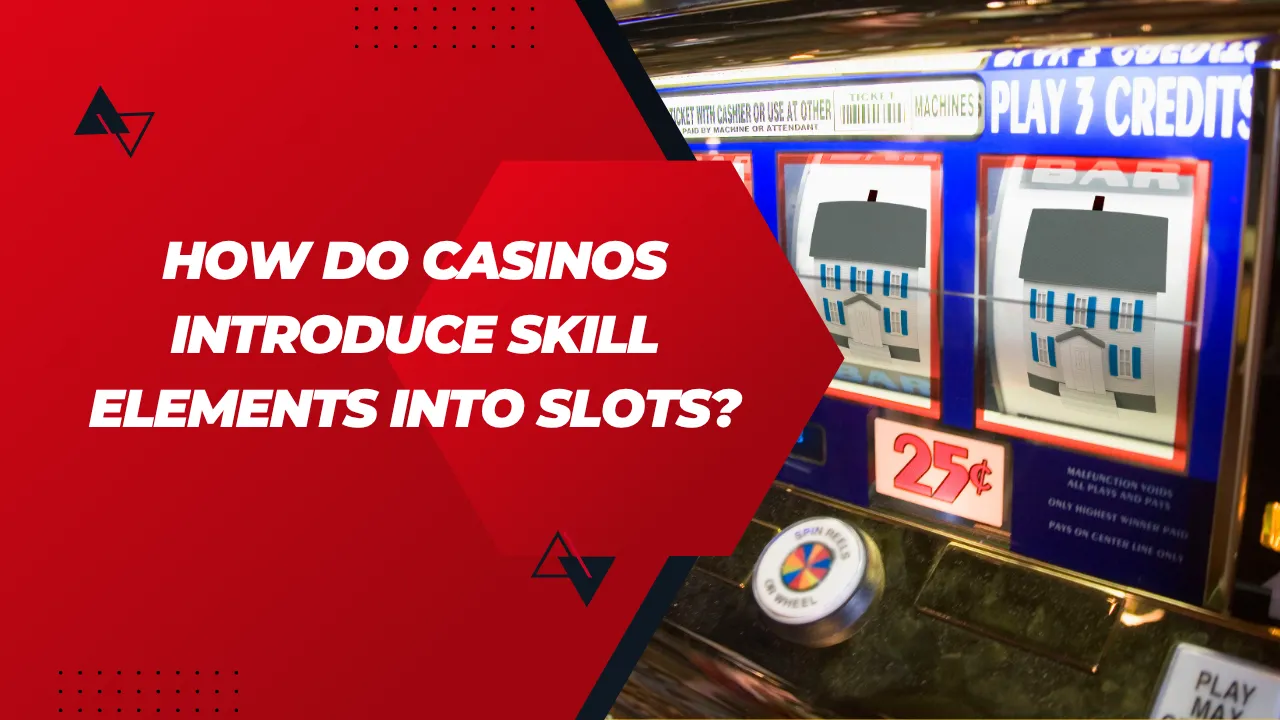Slot machines have always been a symbol of chance. Pull the lever, spin the reels, and wait to see if luck is on your side. But in recent years, casinos have started to experiment with something new: adding skill-based elements into slots. This shift is part of an effort to appeal to a younger, tech-savvy audience that has grown up with video games, esports, and interactive entertainment.
While traditional slots remain popular, many players today are looking for more than just pressing a button and watching the reels spin. They want engagement, decision-making, and a sense that their own choices can influence the outcome. From my perspective as someone who has spent time studying both traditional slot machines and the evolution of modern gaming, the addition of skill elements represents one of the most interesting transformations in casino design.
Why Casinos Are Moving Toward Skill-Based Slots
Casinos have good reason to introduce skill elements. Millennials and Gen Z players are less attracted to purely luck-based games compared to older generations. They grew up playing console games, strategy apps, and online multiplayer titles where personal ability plays a significant role. To attract these demographics, casinos need to offer games that feel less passive and more interactive.
This is where skill-based slots come in. Instead of only relying on chance, these games incorporate bonus rounds, challenges, or decision-making features that let players feel more in control. For example, a player might be asked to navigate a mini-game to unlock bigger rewards, or to choose paths that can increase or decrease multipliers.
Online platforms are adopting similar strategies. Just as land-based casinos innovate with hybrid slot machines, players at online slot sites uk are increasingly seeing variations of slot games that introduce interactive features, bridging the gap between traditional gambling and gaming culture.
Examples of Skill Elements in Slot Machines
Skill-based slots don’t change the core mechanics of spinning reels and random number generators. Instead, they add interactive layers to the experience. For instance, some games feature arcade-style shooting or puzzle-solving rounds where your performance influences the size of your payout. Others introduce timed challenges that require fast reactions, much like mobile games.
One well-known example is “Danger Arena,” one of the first fully skill-based slot machines introduced in U.S. casinos. In this game, players must shoot robots in a video game-style bonus round, and their winnings depend on how many they defeat. While the base game is still governed by chance, the bonus adds a real element of player control.
Another example is the “Space Invaders” slot, where classic arcade mechanics are built into the gameplay. Here, nostalgia and skill come together, attracting players who might otherwise overlook standard slot machines.
How Skill Changes the Player Experience
For traditional players, the thrill of slots has always been the simplicity: press, spin, win, or lose. But adding skill changes the psychology of the game. Suddenly, players feel that outcomes are not just about luck but also about their own abilities.
This sense of control can be highly engaging. It creates a loop where players believe their choices matter, even if the base game is still mostly random. As a result, skill-based slots often hold attention longer than standard games, which is exactly what casinos want.
However, this added layer of control also requires casinos to carefully balance the game design. Too much skill could alienate casual players who just want to relax and spin. Too little skill, and the games risk disappointing the gamers they’re trying to attract.
The Regulatory Challenges of Skill-Based Gaming
Introducing skill into slots isn’t as simple as adding a new bonus feature. Gambling regulators need to ensure that games remain fair and transparent. With traditional slots, fairness is easy to measure: the random number generator guarantees consistent odds. But with skill-based elements, regulators must also consider how much of the outcome is determined by the player’s actions.
For instance, if a highly skilled player can achieve much higher returns than others, does that undermine the definition of a slot machine as a game of chance? Many jurisdictions are still working through these questions, which makes innovation slower in some regions.
Casinos must also be transparent with players about how skill affects outcomes. Marketing these games without clarity could lead to confusion or even disputes over fairness.
The Appeal of Hybrid Gameplay
Hybrid slot games — where luck and skill coexist — are where the industry is currently heading. They offer the familiarity of slots while borrowing mechanics from video games. This mix not only satisfies traditional gamblers but also attracts younger players who prefer dynamic, interactive play.
Hybrid slots also fit into the growing gamification trend in the wider entertainment industry. We see this in fitness apps, language learning platforms, and mobile games that reward engagement with points, badges, or levels. Casinos adopting skill-based features are simply tapping into the same psychology that drives people to play Candy Crush for hours or compete in online multiplayer matches.
Will Skill-Based Slots Replace Traditional Slots?
It’s unlikely that skill-based slots will completely replace traditional slot machines. The classic format remains too popular with older audiences, who make up a significant portion of casino visitors. Instead, skill-based games will complement traditional slots, offering more variety and catering to a broader demographic.
In fact, casinos benefit most when they can offer a mix. Someone who enjoys skill-based games might still spend time on classic reels, while a traditional slot player might try out a hybrid machine out of curiosity. The key is choice, and casinos know that expanding options means keeping players engaged for longer.
Looking Ahead: The Future of Slot Design
The future of slot design will likely continue blending skill, storytelling, and technology. We’re already seeing experiments with virtual reality slots where players physically interact with the game environment. Augmented reality and mobile integrations could be next, creating experiences that feel more like video games than traditional gambling.
Skill-based features will play a role in this evolution, but they’ll need to be carefully balanced. Casinos must maintain fairness while offering experiences that are fun, engaging, and rewarding. Players don’t necessarily want games where they can “beat the system” with skill — they want games that give them a sense of participation, excitement, and immersion.
As technology advances, we can expect slot machines to become increasingly interactive. The lines between gaming and gambling will blur further, making skill-based elements a permanent part of the landscape.
Conclusion
Skill-based slot machines represent a fascinating evolution in casino entertainment. By blending elements of video games with traditional slots, casinos are reaching new audiences and reshaping the gambling experience. These innovations give players more control, enhance engagement, and align with modern expectations of interactivity.
Yet, they also present challenges — from regulatory hurdles to striking the right balance between skill and chance. For now, skill-based slots are a supplement rather than a replacement for traditional reels, but they signal where the industry is headed.
Casinos that embrace innovation while protecting fairness and responsibility will be best positioned to succeed in this new era of slot design. For players, the result is a more diverse, exciting, and interactive gaming landscape that goes far beyond pulling a lever or pressing a button.




